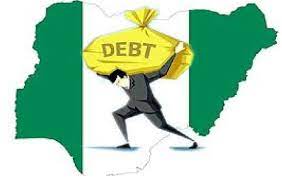The recent by the Nigerian government to leaders of the Global South to agree on a common agenda on ways to reduce the increasing burden of debt and inflation on that region of the world was not only timely but also inevitable considering the huge debt burden impeding the development of these countries
Addressing the Global South Virtual Summit, former President Muhammadu Buhari expressed optimism that the meeting, hosted by India, in its capacity as the voice of the South, would address issues of climate change, food security and access to energy.
‘‘This huge debt burden has significantly derailed many countries’ development plans. The effect of the Covid-19 pandemic and the Russia/Ukraine conflict has further aggravated the situation.
‘‘In this regard, I wish to advise fellow leaders to agree on a common agenda to enable us to put forward our collective demands to the Global North through India as voice of the South.
‘‘I would urge India to further intensify efforts to facilitate the flow of Foreign Direct Investment to the Global South using its leverage as President of G20,’’ he said.
Expressing appreciation to the Prime Minister of India, Narendra Modi, for inviting him to participate in the summit, Buhari noted that the Global South was driven by historical ties and sense of deep solidarity in pursuit of bridging the gap between the South and the North.
He described as very commendable the initiative to convene the summit entitled ‘‘the Voice of the Global South’’ under the theme: Unity of Voice and Unity of Purpose.
He hailed India’s emergence as voice of the Global South, considering the role the country played during its two-year terms at the United Nations Security Council and the humanitarian gesture it extended during the Covid-19 pandemic.
‘‘Nigeria is in full support of this noble initiative and hope that the outcome of the Summit will be given top priority at the G20 meetings,’’ the president said.
Leaders of India, Kazakhstan, Ecuador, Ghana, Sri Lanka, Suriname and Peru delivered statements at the summit.
It is worrisome that although Nigeria’s debt profile is rising steeply, there is no commensurate infrastructural development. For economic experts, the situation would spell doom for President Buhari’s successor as from May 29, 2023.
Recently, the Debt Management Office, DMO, said Nigeria’s total debt stock would hit N77 trillion in May 2023 if the National Assembly okayed the Buhari administration’s N23.8 trillion Ways and Means Advances.
Contrary to the Central Bank Act of 2007 (Section 38.2), which caps advances to the Federal Government of Nigeria at five percent of last year’s revenues, the country’s apex bank has given the federal government N55.3 trillion Way, and Means Advances since Buhari assumed office in 2015.
Meanwhile, the federal government stated that it spent over 80 percent of its revenue on debt servicing in the first 11 months of 2022.
Former CBN Governor, Sanusi Lamido, Deputy CBN Governor, Kingsley Moghalu, and economist Doyin Salami had at different fora accused the apex bank of flouting its law. The then Minister of Finance, Budget and National Planning, Mrs Zainab Ahmed, on her part, had said there is no cause for alarm over the country’s debt profile because the nation has no records of default.
But experts say the significant implication is the government’s over-reliance on short-term borrowing to finance its operations, as the government has had to pay higher interest rates to attract investors and for flaring inflation.
Reacting to the development, a financial inclusion/wealth management expert, Mr Idakolo Gbolade, said the incoming government needs to be worried about the country’s soaring debt profile. He said, “The outgoing government has been financing the budget through deficit spending and the 2023 budget will not be an exception.
“However, an anticipated increase in our debt stock to N77 trillion will have severe implications for the incoming government because it will incur higher costs in debt servicing and significant infrastructure projects will be affected.
“This will strain capital projects implementation in 2023 and could lead to poor budget achievement. The government’s decision to increase the country’s debt burden will amount to spending the future generation’s wealth now. This continuous borrowing without a stable fiscal plan will plunge Nigeria into a debt crisis if not properly handled.
Also, an accounting and financial development don at Lead City University, Ibadan, Prof Godwin Oyedokun, said the fears about Nigeria’s growing debts are justified as Buhari is on the verge of mortgaging the future of unborn children.
“It is not a crime to borrow to finance any expenditure profile of the government. My problem is that your expectations have been affected by the borrowing based on your repayment structure. You will run into issues if you want to buy Limozin and then go back to borrow. Everything you want to do is something you rely on borrowing.
While we commend the federal government for its proactive measure to mitigate the dire consequences of a huge debt burden, particularly that weighing down the Nigerian economy, we hasten to urge President Bola Tinubu to ensure the prudent and judicious use of loans obtained as well as the revenue accruing to government.




